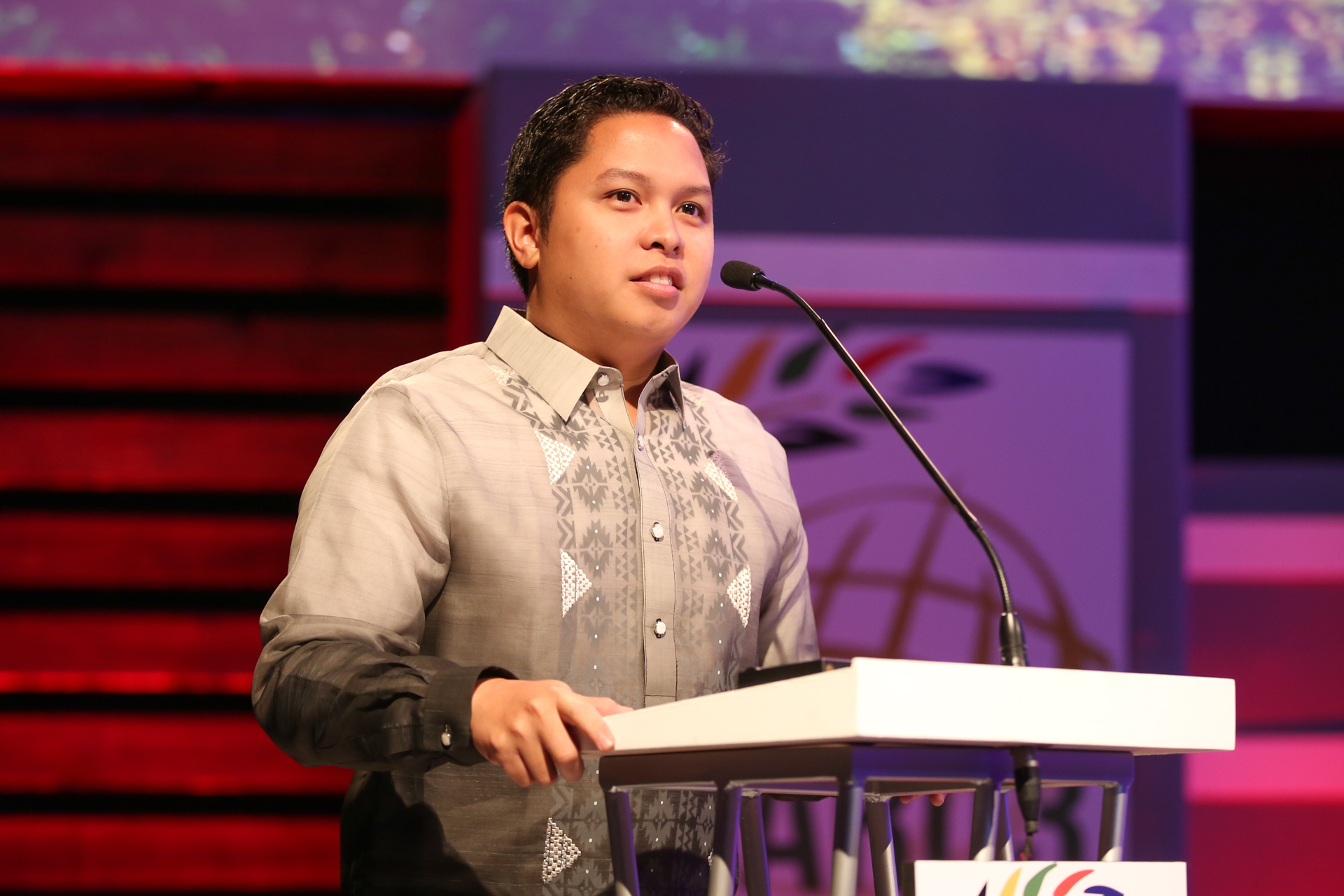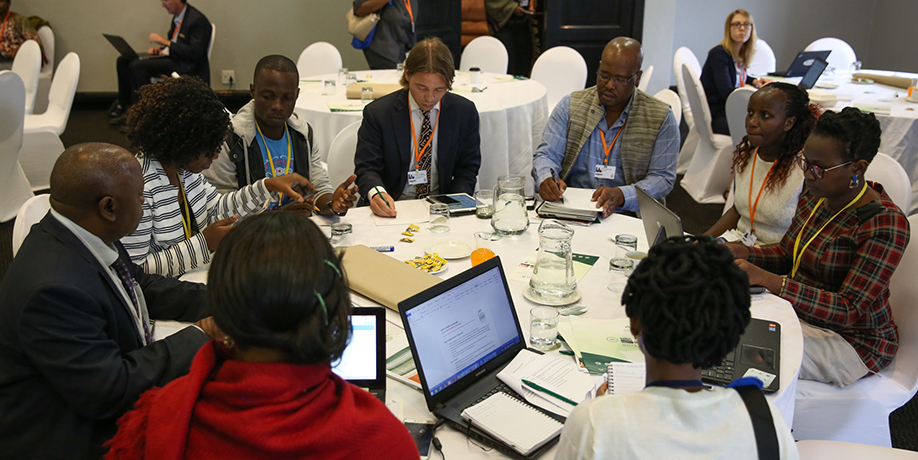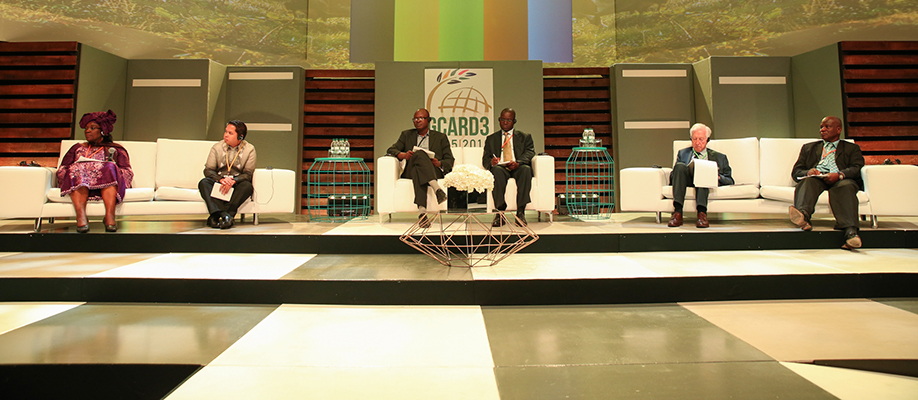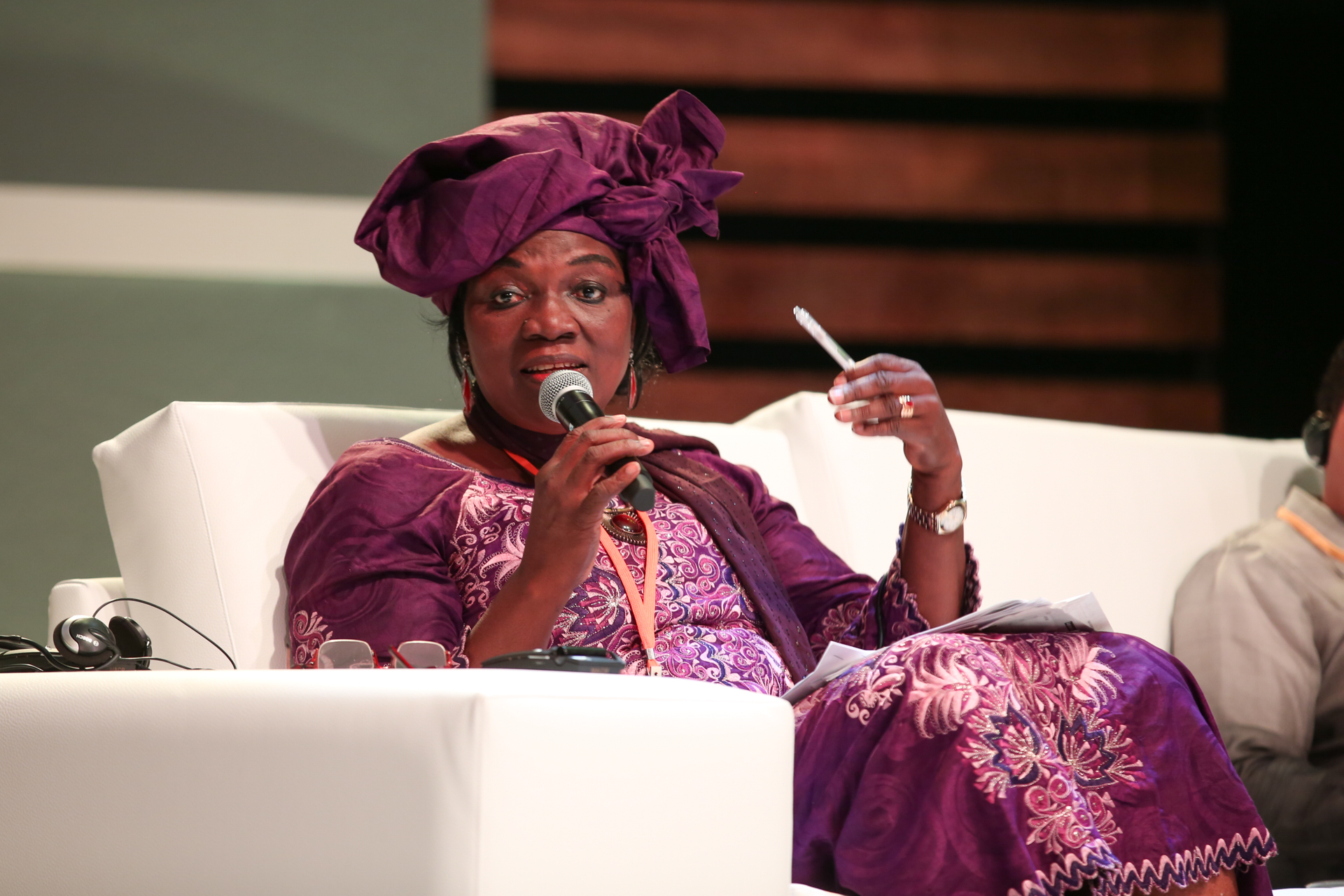



On Wednesday morning, the GCARD3 opening plenary began with a historical overview of the GCARD process. Mark Holderness, Executive Secretary, Global Forum on Agricultural Research (GFAR), described how the 2008 food crisis led to the initiation of the GCARD process resulting in the GCARD Road Map and the reform of the CGIAR. Kwesi Atta-Krah, CGIAR, highlighted some lessons and recommendations from the national and regional consultations leading up to GCARD3, followed by a panel discussion focusing on recent GCARD consultations in Tanzania, Ethiopia, India and the Asia-Pacific region.
The opening plenary concluded with two keynote addresses by youth representatives. Jim Cano, Young Professionals for Agricultural Development (YPARD), posed the challenge of getting youth interested in agriculture. Dimakatso Sekhoto, Makolobane Farmers Enterprises, discussed her vision for contributing to agricultural transformation in South Africa as a young, emerging, black, female farmer.
Delegates then convened in parallel discussion sessions for the rest of the day, focusing on the five GCARD3 themes of: ‘Scaling up - from research to impact’; ‘Showcasing results and demonstrating impact’; ‘Keeping science relevant and future-focused’; ‘Sustaining the business of farming’; and ‘Ensuring better rural futures.’ The discussions were facilitated by ‘catalysts’ who presented key challenges, opportunities and emerging issues. Round table discussions then took place to elicit concrete lessons and future-oriented recommendations that will be included in the Conference’s final outcome.
For the full story, including a summary of proceedings and speakers' remarks, please visit the dedicated page of IISD Reporting Services,providing daily web coverage from GCARD3, through its ENB+ Meeting Coverage.
Photos by IISD/ENB | Kiara Worth
